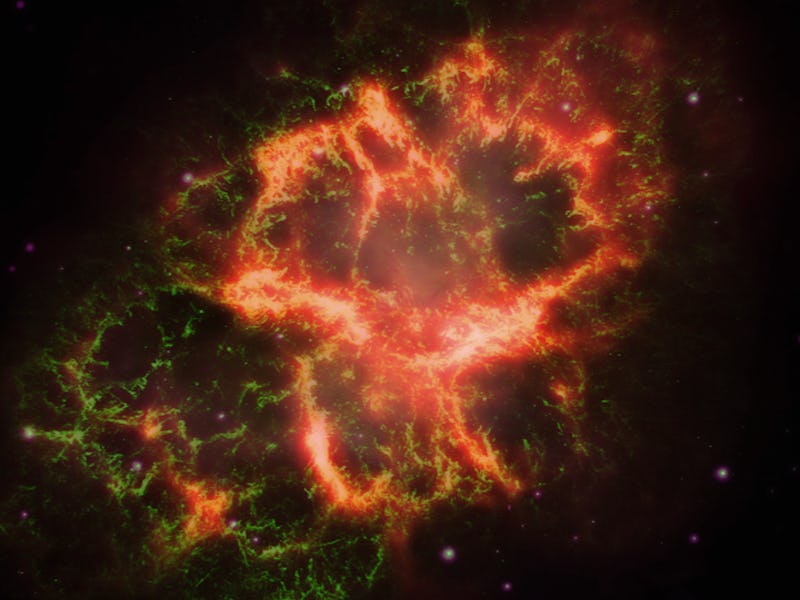Bad news Ancient Aliens fans: life in the cosmos might be even rarer than scientists once thought.
It’s all because the universe is lacking one key chemical element for life, phosphorus. The element — abbreviated as P on the periodic table — is a fundamental ingredient that enables cells to store and transfer energy. Without it, we wouldn’t exist and with so little of it floating around in space, the likelihood of finding extraterrestrial life is looking slim.
Astronomers from Cardiff University used the William Herschel Telescope in the Canary Islands to study the universe’s biggest producers of the chemical, supernovae. It turns out even literal P factories don’t produce much of it at all. Lead researcher Jane Greaves and Phil Cigan will present their findings at the European Week of Astronomy and Space Science.
Join our private Dope Space Pics group on Facebook for more strange wonder.
A 15cm wide fragment of the Seymchan iron-nickel meteorite found in Russia in 1967. The long filament of dark grey material in the center is the phosphorus-rich mineral schreibersite.
Supernovae are the final stage of a massive stars’ lifespan. Once the stellar mass has used up all of the fuel that keeps it burning it begins to collapse into itself until it becomes so dense it can’t sustain its gravitational force. This result is an explosion that spits out massive clouds of gas, which was once thought to hold a ton of P.
A previous study found that a supernova remnant known as Cassiopeia A (Cas A) contained plenty of phosphorus. But when Greaves and Cigan observed parts of the Crab Nebula they found substantially less P, which suggests only certain supernovae produce a lot of the element. This would mean planets formed far away from P-producing supernovae would have little to no hope of developing life.
A false color image of the Cassiopeia A supernova remnant, made with the Spitzer Space Telescope.
“If phosphorus is sourced from supernovae, and then travels across space in meteoritic rocks,” says Greaves in a statement. “I’m wondering if a young planet could find itself lacking in reactive phosphorus because of where it was born? That is, it started off near the wrong kind of supernova? In that case, life might really struggle to get started out of phosphorus-poor chemistry, on another world otherwise similar to our own.”
The duo’s findings are only preliminary results and they hope to get more time with the William Herschel Telescope to observe the Crab Nebula in greater detail. But for now, the quest to find alien life just got a lot bleaker.
